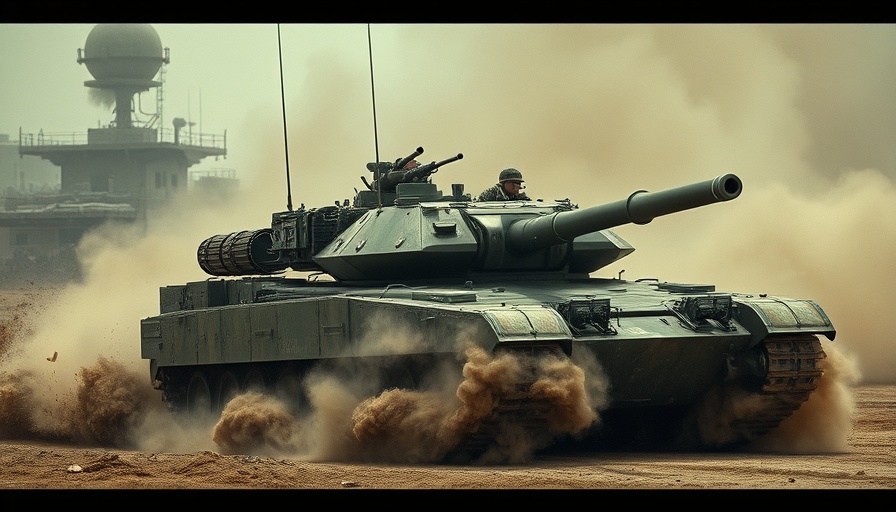
The Current State of Iran’s Nuclear Program: Post-Ceasefire Analysis
The cease-fire between Iran and Israel has raised significant questions about the future of Iran's nuclear ambitions. As conflict subsides, expectations shift towards international negotiations. President Trump’s contradicting claims regarding a U.S. intelligence report highlight this tension. The report from the Defense Intelligence Agency suggests that U.S. military action has minimally impacted Iran’s nuclear program, supposedly only delaying its progress by a matter of months. This assertion is met with skepticism by Trump, who has environmentally more assertive positions regarding Iran’s capabilities.
Geopolitical Implications: Why This Matters
The ongoing discourse over Iran’s nuclear ambitions holds substantial geopolitical weight. Iran’s perceived progress in enriching uranium paired with military threats from Israel and the U.S. cultivates an environment rife with fear and uncertainty. Military strategies employed by Israel during the recent conflict sought to dismantle Iran’s nuclear facilities, but the effectiveness of these actions is now under scrutiny. The conflicting assessments paint a picture of a more complex conflict than merely military might; diplomatic efforts and international collaboration play pivotal roles.
Diverse Perspectives: Contradictions in Leadership
Trump's response to the findings illustrates a broader trend in leadership communications about national security. His dismissal of the intelligence report underscores a key tension: the need for accurate intelligence versus political narratives that bolster public support. For many Americans and international observers, Trump’s rhetoric does not always align with the assessments made by intelligence communities. This discrepancy raises concerns over the credibility of governmental claims and ultimately impacts domestic support and foreign relations.
Future Predictions: What's Next for Iran and Israel?
As the ceasefire takes hold, the upcoming weeks may be pivotal for negotiations surrounding Iran’s nuclear program. Experts predict that diplomatic channels will be critical in shaping a sustainable solution, yet challenges are immense. The likelihood of Iran resuming its nuclear activities while facing external pressures increases if negotiations falter. The outcome of these discussions may redefine relationships within the Middle East and beyond.
The Emotional Toll of Conflict
The human cost of the Israel-Iran conflict cannot be overstated. Civilians on both sides have endured trauma, loss, and displacement due to ongoing hostilities. As peace efforts take precedence, communities will need support to heal and recover from the impacts of war. Efforts to build trust and foster dialogue between the Israeli and Iranian populace might be vital in overcoming historical animosities.
Call to Action: Engaging in Constructive Dialogue
In light of recent developments, it’s crucial for citizens to engage in discussions regarding foreign policy and the implications of military action on international peace. By advocating for diplomatic approaches and open conversations about Iran’s nuclear ambitions, individuals can play a role in shaping a more secure future. Stay informed, participate in discussions, and support initiatives promoting peace and stability. Now more than ever, the world needs citizens committed to constructive dialogue.
 Add Row
Add Row  Add
Add 




 Add Row
Add Row  Add
Add 

Write A Comment